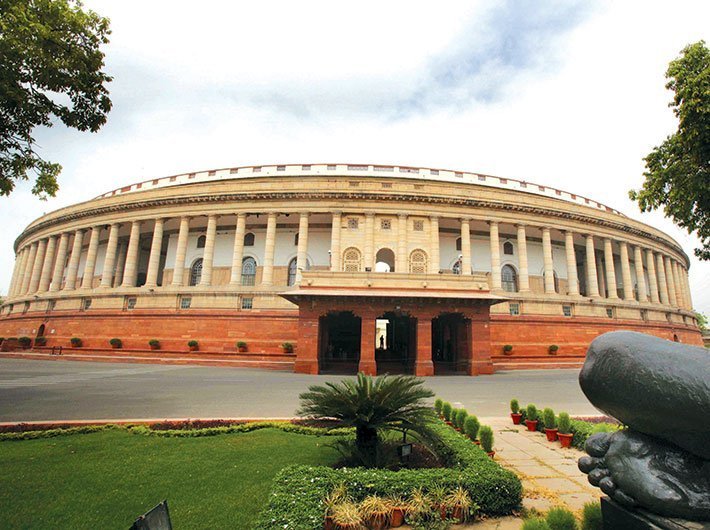It’s good that environmental concerns are on the parliament’s agenda, but experts criticise piecemeal approach
Effective legislation addressing sustainability is critical for the implementation of India’s sustainability goals. The government planned to introduce a total of 16 new bills and consider seven already introduced bills for passing in the parliament’s winter session of 2022, which began on December 7 and ended on December 23, six days ahead of the schedule. Ultimately, nine bills were passed in 13 sittings. Two of the bills passed tackle the issue of environmental sustainability, arguably the most pressing concern of our time. We discuss the key provisions of the sustainability-related bills that were up for consideration in the winter session.
First, the Energy Conservation (Amendment) Bill, 2022, passed on December 8, seeks to catalyse the decarbonisation of the Indian economy. The Bill empowers the central government to specify a domestic carbon credit trading scheme, which would eventually grow into a mandatory cap-and-trade system, according to a draft blueprint for stakeholder consultation. The Bill also insists upon the use of a minimum share of non-fossil sources of energy for designated consumers, including industries, the transport sector and commercial buildings.
Additionally, it expands the scope of the Energy Conservation Code to office and residential buildings. However, ambiguities remain. It is not specified who would regulate a carbon credit market. Moreover, it would be difficult for consumers to meet the obligation to use non-fossil energy sources as power supply is often a geographical monopoly, and distribution companies decide their own energy mix. MPs have also raised questions about the centralised structure of the Bill, given that energy industries have unique characteristics and dynamics within each state.
Second, the Wild Life (Protection) Amendment Bill, 2022, passed on December 8, implements the Convention on International Trade in Endangered Species of Flora and Fauna (CITES). In line with India’s CITES obligations, it rationalises its schedule to classify wild animals and plants based on their extinction threat, regulates the trade of specimens, and regulates the possession of live animal specimens. It empowers the central government to designate a Management Authority to grant trading permits, as well as an advisory Scientific Authority. It also increases penalties for the violation of its provisions. Controversially, the Bill gives the right to transfer live elephants to those with ownership certificates. Environmentalists have raised concerns over the misuse of this provision.
Additionally, numerous pending bills that concern sustainability did not make it to Parliament. The Biological Diversity (Amendment) Bill, 2022, aims to promote the Indian system of medicine and facilitate the fast-tracking of research and patenting. Towards these objectives, it simplifies compliance requirements for domestic companies and exempts practitioners of “codified traditional knowledge” from the requirement to share benefits with local communities. These provisions generated backlash for allegedly prioritising industry, commercial trade and intellectual property at the expense of biological resources, contradictory to the spirit of the 2002 Act.
The Forest Conservation Amendment Bill, 2022, seeks to eliminate ambiguity in the applicability of the Act across different types of lands, and also to promote plantation in non-forest areas. Private developers would be allowed to clear forest land for compensatory afforestation and development projects without the prior consent of gram sabhas. Critics argue that the Bill threatens to remove the participation of forest-dwelling communities from the process of land clearance.
The Coastal Aquaculture Authority (Amendment) Bill, 2022 aims to reduce the regulatory compliance burden without diluting principles of environmental protection in coastal areas. The North East Water Management Authority Bill, 2022 repeals the Brahmaputra Board Act, 1980 to create the North East Water Management Authority, which will manage the Brahmaputra and Barak basin.
The prominence of sustainability at the legislative table is a significant step towards India’s sustainability goals, demonstrating that the parliament has its eye on the ball. However, many issues still remain unaddressed. Topics that are missing from the discussion include the adoption of a circular economy model and the promotion of renewable energy, for example. These themes must be brought to the forefront of climate action. Despite the urgency of the climate question, the process of legislative change remains limited in scope and slow in pace.
To hasten legislative reform, many have called for a more comprehensive Bill on sustainability, as opposed to a piecemeal approach. At the same time, it is evident that the complexity of each sub-issue at hand necessitates extensive stakeholder consultations and careful scrutiny. Combating climate change requires sustained commitment, coordination across stakeholders and institutional support, which can only be garnered through quality legislation. A balance of speed and due process must be maintained to ensure that sustainability legislation is not ineffective or even counterproductive.
Dr. Palakh Jain is Associate Professor at Bennett University and Senior Visiting Fellow at Pahle India Foundation. Shreya Ganguly is a Research Assistant at Pahle India Foundation.
